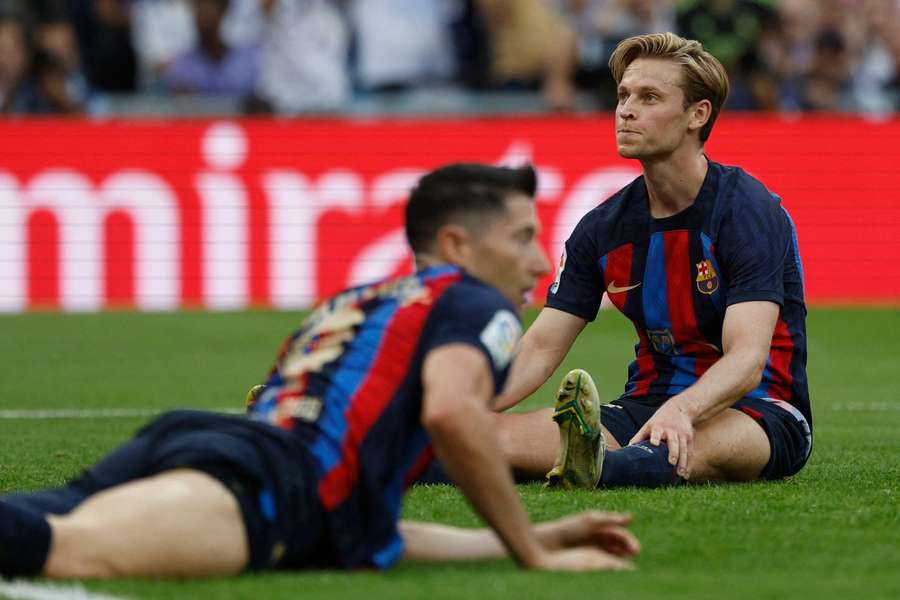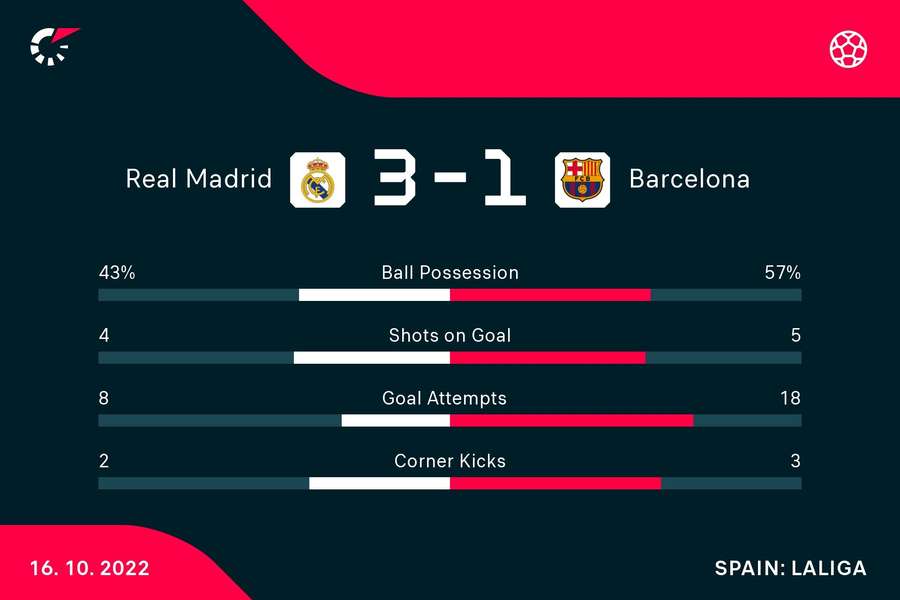Real Madrid - Barcelona: How lacklustre starts cost Barca in El Clasico clash

Real started the match well and managed to blunt Barcelona's pressure in the opening half hour. This is documented by the PPDA statistic, the number of passes in a row that the opponent exchanges in the first 60% of the pitch before any defensive action is taken. The smaller the number, the more intense the attack. In the opening 15 minutes, Barcelona allowed 13 passes to the opponent and even 20 between the 16th and the 30th minute.
Check out all the stats from the game with Flashscore.
In the rest of the game, the hosts didn't have that freedom. Real used this part of the match to make their typical forays down the left flank and it paid off. In the 12th minute, Toni Kroos broke through the defence and after his great pass into the final third, Vinicius Junior raced onto Marc Andre ter Stegen. His shot was parried by the German goalkeeper, but Karim Benzema's finish was clinical.
But Barcelona tightened up after that. Their stoppers had plenty of time to execute their actions. Eric Garcia made the most progressive passes of the whole team, attempting 15 of them, with a success rate of 87%. Of all the players on the pitch, only Kroos could compete with him with 11. Jules Kounde, on the other hand, could make his favourite forays into the opponent's half with the ball at his feet. In this match, he notched up nine progressive ball possessions.
That's a truly impressive number - the player with the best average in LaLiga will notch up just under six such actions per 90 minutes. The Frenchman was then able to pass into the attacking third of the pitch, where he sent 19 passes during the match, the most of any player.

The youngster Pedri is the best in the competition in terms of second assists, and he made his presence known in El Clasico. In fact, the biggest chance of the whole game (according to xG) came from him, apart from Rodrygo's penalty. In the 25th minute, he dropped into his favourite area near the stoppers. From there, he exchanged the ball with Ousmane Dembele and sent it up the wing to Raphinha. The Brazilian then fed it in front of goal to Robert Lewandowski, but he missed the target in a stunning 0.53 xG chance, depriving the young Spaniard of another second assist.
Despite conceding for the second time in the 35th minute, the end of the first half was Barcelona's best phase of the match. Between the 31st and 45th minute, the Catalans dominated perhaps every statistic They had 73% ball possession, and it even took Real 34 Barcelona passes before they could break up their action. The duelling success rate climbed to 65% in this stretch, and Xavi's charges also notched up 0.69 attacks per minute.
After the break, however, Barca were unable to build on what they had done in the last 15 minutes of the first act at all. Probably, it had the biggest impact on the duels. Their success rate dropped from 65% to an abysmal 46%. The same can be said for possession, which lagged behind their opponent from the capital. The reason for this was the increased intensity of Madrid's pressing and the visitors completed only 82% of their passes.
Overall, however, Barcelona weren't too far behind their opponents in terms of quality and created enough quality chances to win the game. Real, however, managed to make great use of the opening stages of the match and then had that much-needed luck, adding a second goal when their opponents were at their best, while cashing in late on with their third pivotal goal.
